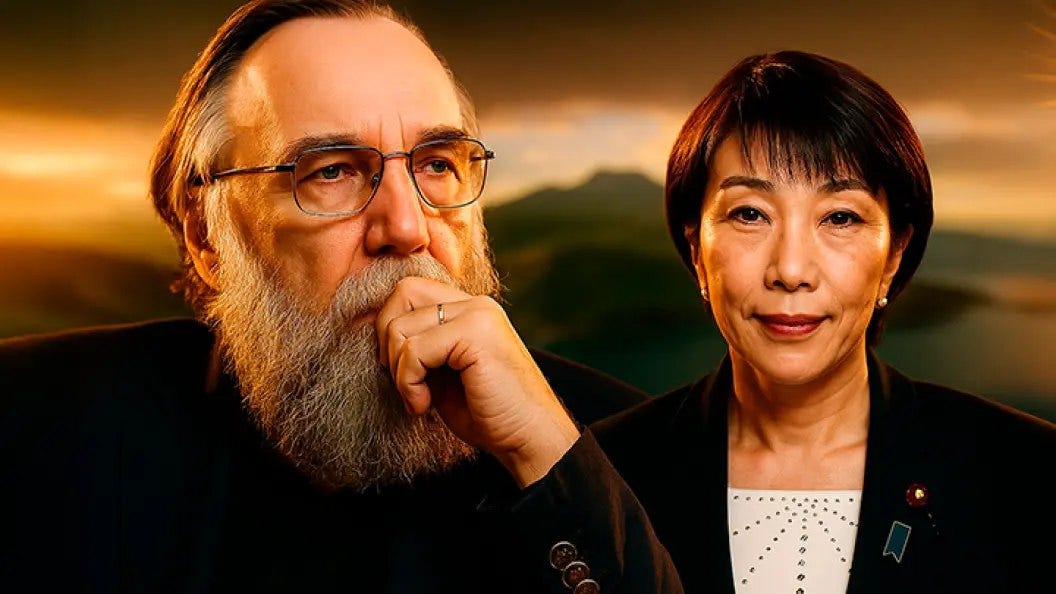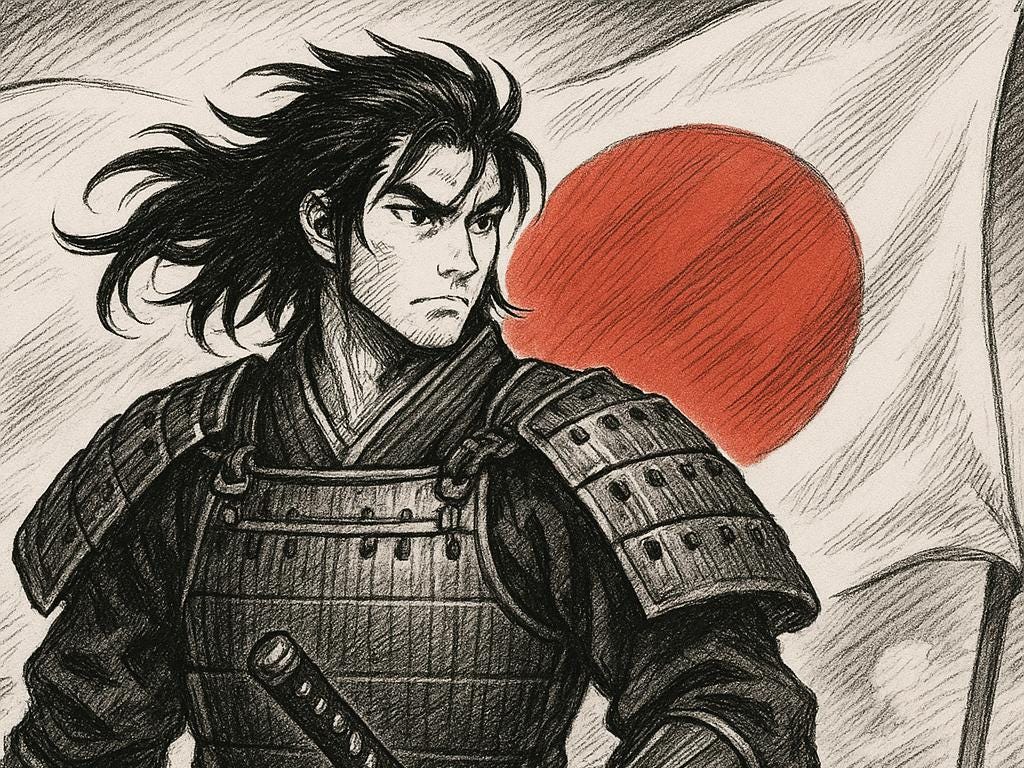Japan Reawakens to Tradition
Moscow sees a new path as Japan turns from liberal decay to ancestral strength.
Alexander Dugin sees Japan’s turn under Sanae Takaichi as a civilizational awakening that could align Tokyo with Russia in the global revolt against liberalism.
Japan has elected its first female prime minister — Sanae Takaichi. This is a very serious sign.
All over the world, liberal ideology is collapsing. Since the early 1990s, it has dominated politics, economics, and culture — virtually unchallenged. Yet after thirty-five years of unbroken rule, liberalism has reached total exhaustion. Its main tenets — human rights universalism, the “end of history,” individual identity, wokeness, transgender ideology, illegal immigration, and multiculturalism — have failed on a global scale.
The liberals were on the verge of seizing control over all humanity; now, liberalism and globalism are collapsing everywhere. Russia, China, India, the Islamic world, African countries, and Latin America — united in BRICS — have risen precisely against this agenda. The election of Donald Trump was the first major blow to liberal hegemony: from his first day in office, he rejected the core dogmas of the liberal program, including LGBT and transgender activism, and the ideology of Critical Race Theory — anti-White racism that had taken over Western education and culture. This entire package has been repudiated by the majority of non-Western humanity, and now even by America itself. Only the European Union remains as the final bastion, though not all of its member states still share the same convictions.
It is therefore no surprise that the liberal paradigm has also collapsed in Japan — long seen as a country integrated into the American-centered Western world. Following Trump’s example, Japan has elected a woman who can be called a “Trumpist” — or, perhaps, a “Japanese Trumpist.” Sanae Takaichi stands for traditional values: marriage as the union of man and woman, women taking their husband’s surname after marriage, and “zero immigration” — meaning that both illegal and legal migrants should be expelled from Japan.
Takaichi calls for a return to the Shinto faith, a reaffirmation of the imperial cult, and the revival of traditional Buddhism. She regularly visits the shrine dedicated to Japan’s war dead from World War Two, openly defying liberal narratives about Japan’s past. In essence, she advocates the restoration of Japan’s military and political sovereignty. It is striking that the first female prime minister once played drums in a heavy-metal band. This remarkable woman — a former metal drummer — now leads the revival of the samurai spirit, traditional values, the imperial cult, the Shinto religion, and the worship of the sun goddess Amaterasu, ancestress of the imperial line.
This is nothing short of a conservative revolution in Japan, unfolding before our eyes. The more moderate Buddhist party Komeito has withdrawn from the ruling coalition with the Liberal Democratic Party now led by Takaichi. Yet she has drawn into government another force — the even more right-wing, conservative Japan Innovation Party (Ishin no Kai).
Is this good or bad for us? Ideologically, it is good. Russia, too, is returning to traditional values — to the ideals of Empire, Orthodoxy, and national identity. That is our trend, as it is in America and, increasingly, across the world. Japan, in its counter-liberal surge, is merely catching up with the rest of humanity, which is rapidly discarding the rot of liberal ideology.
The European Union remains the final island of decay, degeneration, and political senility — but likely not for long. Japan, by contrast, is joining the ranks of countries founded on traditional values. Russia belongs to this same camp, which creates fertile ground for dialogue.
At the same time, Japan remains within the framework of American foreign policy. Its growing militarization means it will pursue a more aggressive course in the Pacific region. Russia and Japan have a long and difficult history — beginning with the Russo-Japanese War of the early twentieth century, when Tokyo, after the Meiji Restoration, oriented itself towards the United States. This could pose a certain risk to Russia.
Yet this new direction in Japan is an even greater challenge to China — another Pacific giant, and Russia’s close friend and ally. For that reason, the restoration of normal relations with a newly traditionalist Japan — now ideologically closer to us — must not come at the expense of our partnership with China, our principal and foundational ally.
Still, if we see from Sanae Takaichi — this “samurai drummer” — real movement towards Russia and a genuine effort to achieve Japan’s strategic sovereignty, meaning liberation from direct American control, then we will have something to discuss. Russia could build a bilateral relationship with Japan based on mutual interests. We could even act as mediators of peace in the Pacific, helping our Chinese friends shift from confrontation with Japan towards some form of Far Eastern cooperation. As a great Pacific power, Russia could play a significant role in this transformation.
It is too early to say what the rule of this extraordinary Japanese leader — who embodies the symbolic essence of the goddess Amaterasu — will bring. But it marks a remarkable moment in Japanese history. And perhaps, under this new “Goddess Amaterasu,” Russia may be able to establish constructive, future-oriented, multipolar relations with Japan — ideological, civilizational, and geopolitical — all in harmony with our dearest friend and partner, great China, where traditional values likewise prevail.
By the way, traditional values also triumph in beautiful North Korea — unlike in South Korea, which still stands as one of the bastions of liberal decadence. Yet I hope this is only temporary, and that Korea will become united and truly Korean. One should remember that deep tensions exist between Korea and Japan as well.
In short, Russia now has a chance to reset its relations with Japan on the basis of a shared return to traditional values. Let us see what comes of it.
(Translated from the Russian)





I'm old enough to remember the Soviet Union and Communism. It's kind of funny to realize that Russia has more freedom than the U.S. It boils down to leadership, Russia's leaders actually care for the citizens unlike America
Interesting and thoughtful take!